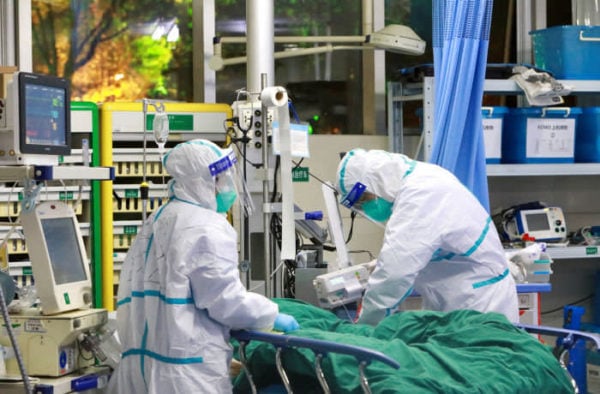A new study has claimed that vitamin K could be effective in combating COVID-19, the respiratory disease caused by coronavirus.
According to the Guardian UK, this is after researchers discovered that patients who have died or admitted for the virus were those who lacked enough vitamin K in their body system.
Vitamin K is a group of fat-soluble vitamins that play a role in blood clotting, bone metabolism and commonly found in spinach, eggs, and hard and blue cheeses.
To arrive at their conclusion, the researchers examined patients admitted to the Canisius Wilhelmina hospital in Nijmegen, a city in the Netherlands.
They used 134 patients hospitalised for COVID-19 between March 12, and April 11, alongside a control group of 184 age-matched patients who did not have the disease.
Findings showed patients with worst COVID-19 cases were those largely deficient in vitamin K, suggesting its inclusion in diet could help fight the virus.
Rob Janssen, one of the Dutch researchers, called on people to always endeavour to take vitamin K except those on blood-clotting medications such as warfarin.
“We are in a terrible, horrible situation in the world. We do have an intervention which does not have any side effects, even less than a placebo. There is one major exception: people on anti-clotting medication. It is completely safe in other people,” he was quoted as saying.
“My advice would be to take those vitamin K supplements. Even if it does not help against severe COVID-19, it is good for your blood vessels, bones and probably also for the lungs.
“We have [vitamin] K1 and K2. K1 is in spinach, broccoli, green vegetables, blueberries, all types of fruit and vegetables. K2 is better absorbed by the body. It is in Dutch cheese, I have to say, and French cheese as well.”
On his part, Jona Walk said the researchers intend giving vitamin K to several patients with COVID-19 to enable them generalise the findings from the study.
“We want to take very sick COVID-19 patients and randomise so that they get a placebo or vitamin K, which is very safe to use in the general population. We want to give vitamin K in a significantly high enough dose that we really will activate [the protein] that is so important for protecting the lungs, and check if it is safe,” he said.
The study, carried out in partnership with the Cardiovascular Research Institute Maastricht, was submitted for peer review on Friday with the researchers currently seeking funding for a clinical trial.
Copyright 2025 TheCable. All rights reserved. This material, and other digital content on this website, may not be reproduced, published, broadcast, rewritten or redistributed in whole or in part without prior express written permission from TheCable.
Follow us on twitter @Thecablestyle

